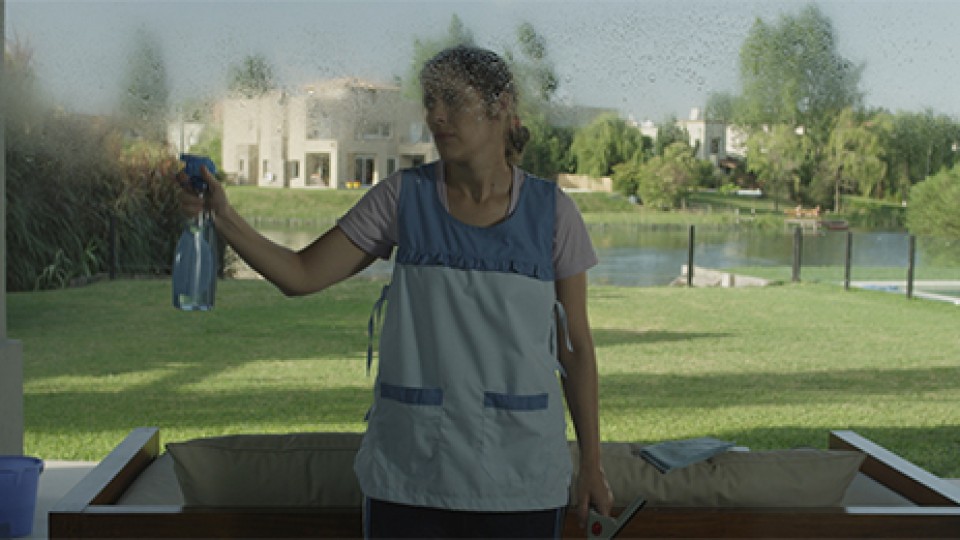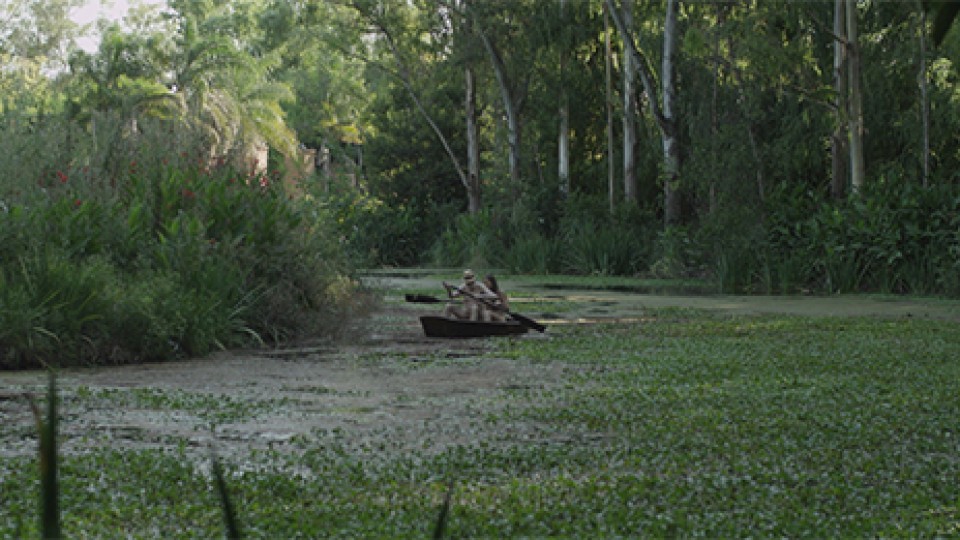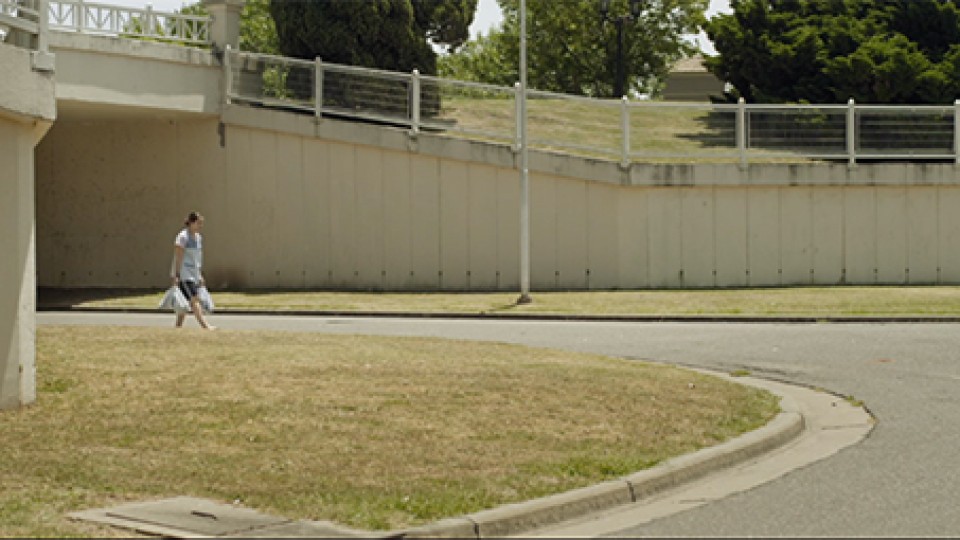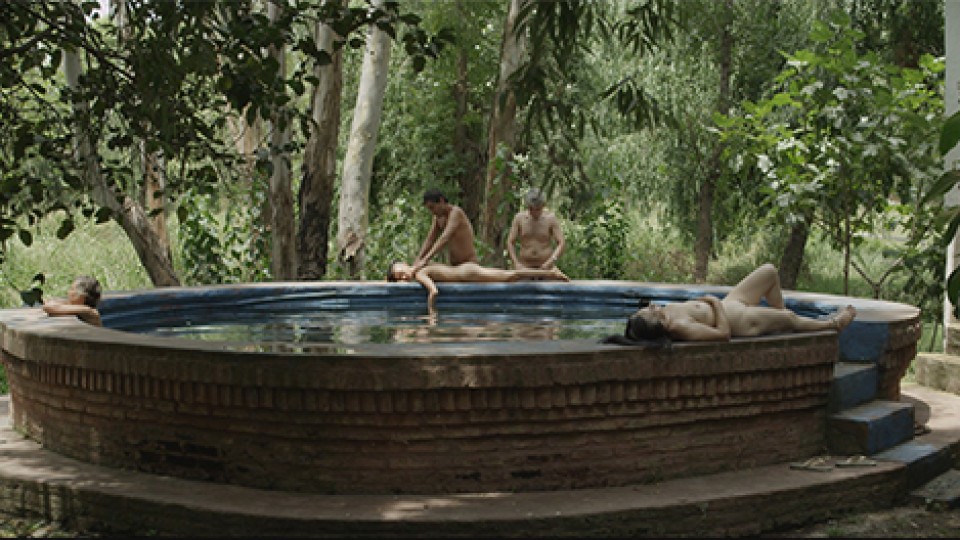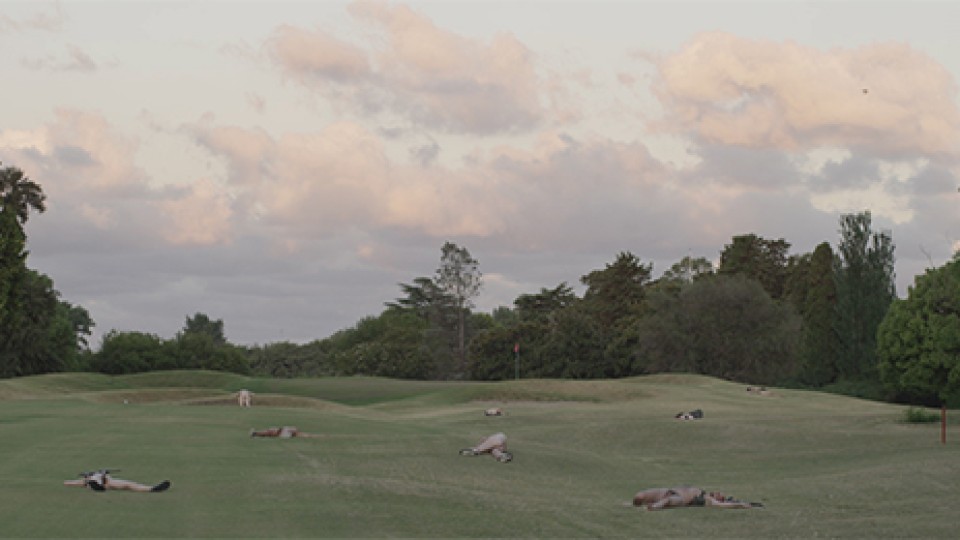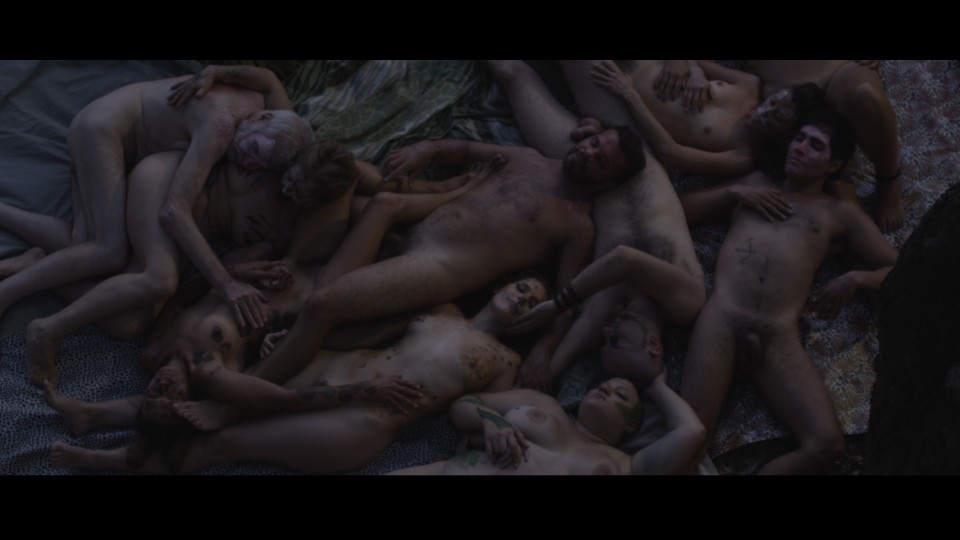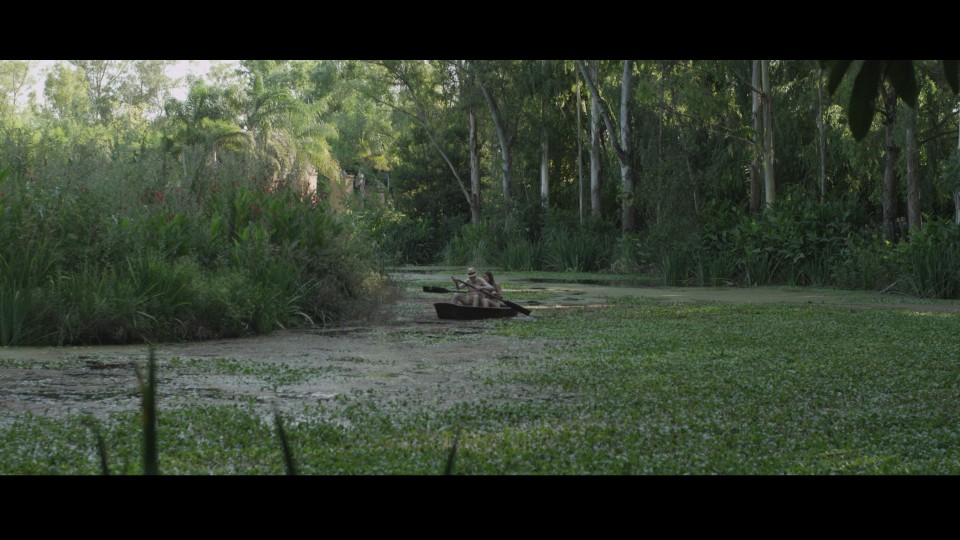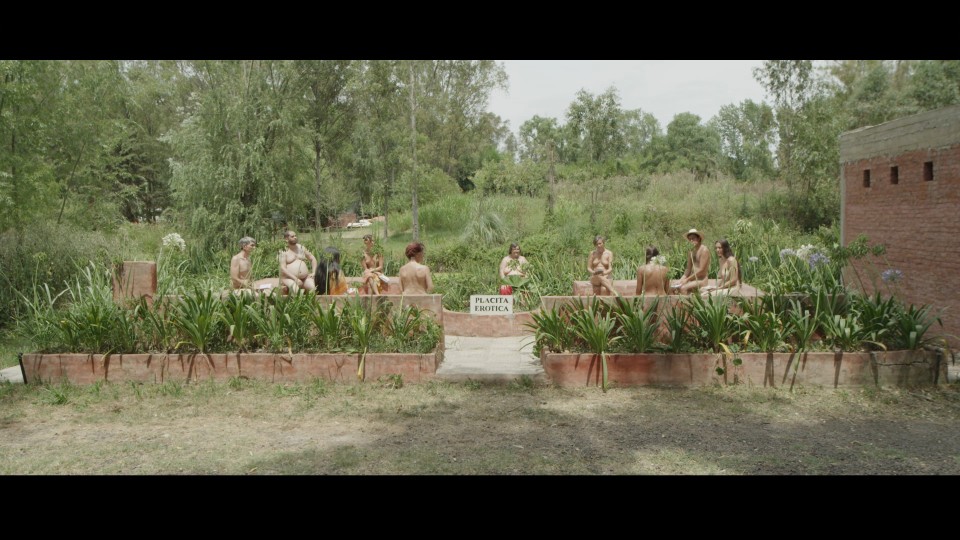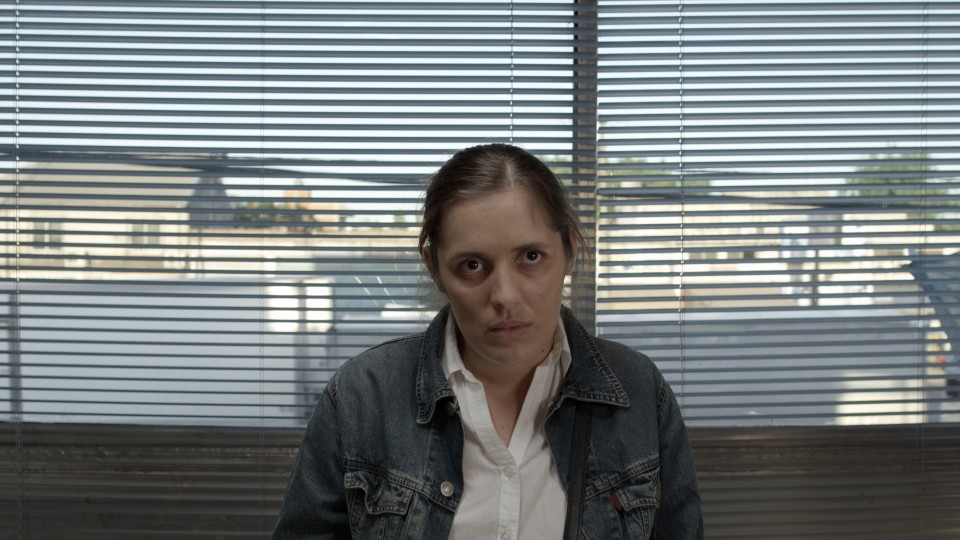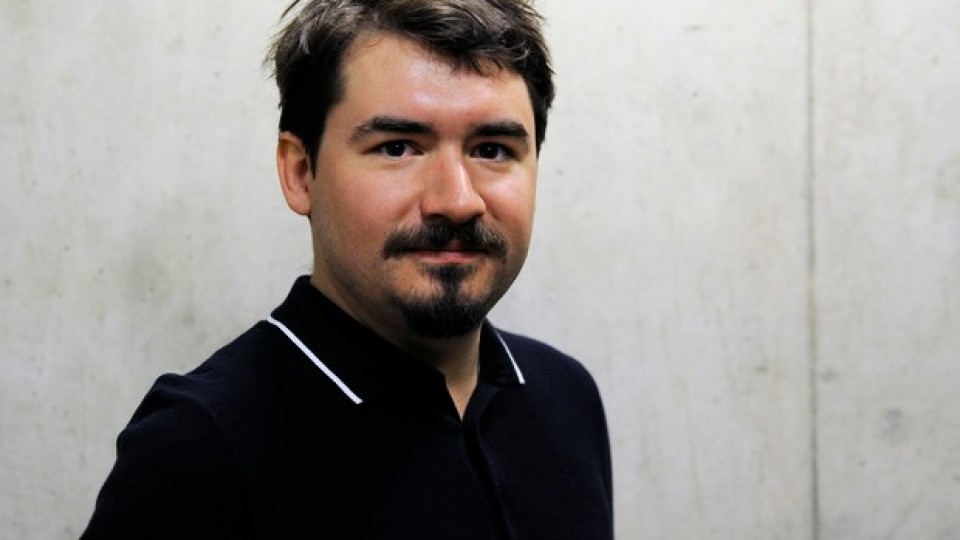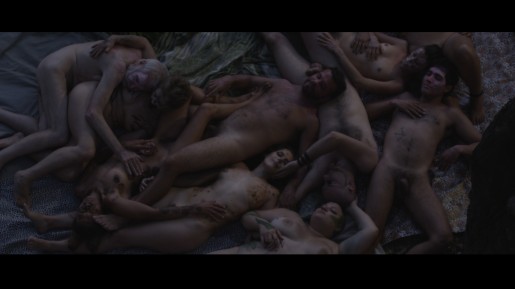Austrian filmmaker Lukas Valenta Rinner has been a long time observer of Argentinian society and its widening gap between
rich and poor. A Decent Woman confronts two secluded communities, a wealthy gated settlement and a nudist/swingers club right next door, subtly and slowly
tracing the rise of tension that inevitably leads to the final showdown.
Following Parabellum, you have now shot your second full-length feature film in Argentina as well. Does A Decent Woman continue something you began in Parabellum?
LUKAS VALENTA RINNER: The working procedure for A Decent Woman wasn't comparable in any way with Parabellum. As prize-winners at the last Jeonju Festival in June 2015, we were contacted by the festival to ask whether we had an idea
for a new film. When I said yes, because for a long time I’d had a particular location in mind for a film, I was told
I had five days to prepare a synopsis and some information about the project. In a very short time we came up with a concept
for something we really only had a vague idea about. A week later approval came through, and we were given a deadline of six
months. We set aside two months for writing the screenplay, and parallel to that the pre-production process was set in motion.
Shooting took 6 weeks. The first day of shooting was also the first day of editing; we were working on the basis of five days
shooting followed by two days for editing, which I was doing together with the editor, Ana Godoy. Then there was another month
of real post-production, and we had the first version ready.
Nobody could watch A Decent Woman, though, without being reminded of Parabellum. In both films people are living or existing in some kind of isolated community. A survival camp Parabellum, a wealthy gated settlement in A Decent Woman, which is immediately adjacent to a community where people are searching for physical and sexual freedom in nature. What
is it you find fascinating about the subject of enclosed ways of life removed from everyday existence?
LUKAS VALENTA RINNER: I've been living in Argentina for many years, and one trend that has become very apparent is for wealthy social groups to
isolate themselves. Increasingly these people live in small communities that are completely cut off, with semi-urban infrastructures
like nurseries, offices, supermarkets, cinemas, etc, so you can live without any contact at all with the outside world. Then
you get young people going into the city at the age of 16 who don't know how to use a bus. It strikes me as a contemporary
phenomenon; I put it down to the effects of capitalism. For wealthy people to isolate themselves from poverty is just an aspect
of life in Argentina. I find it very interesting to explore that kind of habitat. The fact that there was a nudist/swingers
club right next door was simply a stroke of luck that emphasizes the tension you can find these days in provincial Argentinian
life, where extreme poverty exists alongside incredible luxury.
How have you attempted to depict these contrasting worlds in visual terms?
LUKAS VALENTA RINNER: For me and my cameraman Roman Kasseroller the starting point is always the architectonic factor. We tried to reflect the
way nature had been tamed in the gated community, with matching colours and rigid organisation, in the framing of the film
as well. Then there is a powerful contrast with the club. In the same way that in Parabellum the images of the city contrast with the jungle, the nudist club is visually characterised by its exorbitant nature, with
pools covered in plants, overgrown temples, etc. The most fascinating issue for us in all this was how differently people
can perceive nature.
Unlike with Parabellum, this film features very poetic, stylised images which also create an association with painting and sculpture, due to the
naked bodies.
LUKAS VALENTA RINNER: We had a whole series of references to painting, but at the same time it was really surprising how naturally these images
composed themselves. There are several wide shots that are reminiscent of paintings but came about in a completely organic
way, without us intervening to construct them. We set up the camera, put the actors in position, and the images just appeared.
I think the association of nature and naked bodies sets off an organic process.
The film begins with a series of job interviews, a kind of prologue, where we see what happens when people’s individuality
is subjected to the criteria of the job market. The alienation of the individual under material pressure, whether it's in
the lives of wealthy people or the existence of the housekeeper, Belén, seems to be a crucial subject for you.
LUKAS VALENTA RINNER: It was definitely important for us to tell the story of these women, who are really living in a kind of modern slavery. They
are employed as domestic servants, and they live in disgraceful conditions, the pay is awful, they often don't have any time
off – and they also have to cope with various kinds of bad treatment. It was horrifying for us to see that while we were
on the set, trying to reproduce the life and work of an in-house maid, the situation was reproduced in real life all around
us. That often created bizarre parallel worlds. The images we manufactured were constantly being repeated on all sides. The
club also becomes the place for Belén where she can find herself.
Whether you are showing a woman who lives in a spotless house which she has cleaned and tidied every day, or a protagonist
who attends the club and devotes herself to (sexual) self-development, in both worlds there seems to be a confrontation with
meaninglessness.
LUKAS VALENTA RINNER: We didn't want to be one-sided in presenting the gated community as a place where life is meaningless. We were also interested
in the allowing the lethargy and meaninglessness in the nudist club to come to the surface in various ways. That's another
place where lonely people attempt to find some connection to others. It’s just that they employ a kind of physicality
which ultimately throws them back on themselves. That creates an atmosphere of sadness and melancholy in both places.
One characteristic of this film is quietness, with calm camera movements and silence, lack of speech between the people. How
difficult is it to find the rhythm and dramatic structure of suspense within this slow atmosphere?
LUKAS VALENTA RINNER: For A Decent Woman I worked out a concept together with Roman Kasseroller where we would use tracking shots, where the movement of the camera
itself creates a certain rhythm or tension, sometimes accompanying the characters or moving towards them in situations. We
have an autonomous camera which follows the narrative or anticipates it. That's definitely more organic than in the last film.
We wanted to move away from a fixed camera and find out how far you can construct tension and dynamism with a moving camera.
Since we didn't have much time for advance preparation, there was a lot of discussion on the set. We only had a few shots
for each scene, and they were very clearly defined. We didn't have time to test alternative shots. That was very radical.
It turned out to be a good thing that we had to be so rigorous. I don't think it would have worked out for us any other way
in such a limited time.
The main actress Iride Mockert is outstanding. What ideas did you have in mind when you started searching for your protagonist?
LUKAS VALENTA RINNER: In relation to the total time we had for the project, the casting process was very extensive. We had hardly finished writing
the first page of the script when we started looking for the main actress, and we knew very well we needed someone outstanding
who could meet a large number of criteria. The part of Belén is a risky one, and we needed someone we could develop a relationship
of trust with as quickly as possible, someone who could also take that risk. Iride Mockert stood out in the pre-casting sessions,
when I wasn't there at all. She is extremely versatile. She can appear so insignificant and closed, and then suddenly she
blossoms like Venus, and she's beautiful. Her background is in very physical theatre, and I really needed somebody who could
work with her body a great deal. It certainly wasn't easy for her. Playing the part of a main protagonist is in itself a huge
challenge for an actress, and on top of that she is naked in a large number of the scenes.
As a filmmaker, how did you find working under such time pressure? Did it make you want to get back to a mode of working where
you can devote more time to a subject, or is there also something stimulating about having to make decisions and act so quickly?
LUKAS VALENTA RINNER: I enjoyed it a lot, and I found it incredibly inspiring because it was an experimental mode of working as well. Improvisation
was always part of the concept. I'd really like to achieve some kind of mixture of forms. Possibly working on a script construction
over a long period, but then adopting this kind of dynamic shooting which leaves a great deal open and makes lots of things
possible. I can well imagine moving further and further away from documentary style with the narrative. And it's very rewarding
to be able to use the energy behind an idea and put it into practice quickly. Developing and implementing Parabellum took four or five years. I feel too young to spend so much time on one idea. In that sense such a fast-moving form is far
more enriching. To a certain extent it was Parabellum that led me to A Decent Woman, and now this film has brought up a lot of new ideas for me. I'm very interested in social habitats and the effect they have
on people. Right now something like that interests me in Austria.
The title of this film is presented in three languages, as Los Decentes, A Decent Woman, Die Liebhaberin. What does the term “Decentes/Decent” convey?
LUKAS VALENTA RINNER: The idea for the title came about because the residents of the gated community always signed their threatening letters to
the nudist club "Los Decentes" – the Decent Ones. It struck us as the perfect symbol for this gated community. The title
A Decent Woman expresses something of the mysterious, enigmatic quality deep inside the character of Belén. And of course the double morality
of these two spaces is also the point. Who exactly is being moral? The "decent ones" or the people who are suppressed and
liberate themselves so brutally? The German title, Die Liebhaberin (The Mistress) also indicates that she surrenders to this sexuality in an act of liberation.
A word about the enigmatic end of the film: at this point the story takes on a fantastic aspect in that the characters in
the club make themselves up as exotic, mythical beings and embark upon an apparently silent conspiracy in drastic fashion.
Inevitably this final section will be seen in the context of recent terrorist attacks, which was presumably not your intention
at all.
LUKAS VALENTA RINNER: We conceived the story without any political intention, although the whole thing can definitely be seen as driven by anti-capitalist
attitudes. There is more of a reference to Kōji Wakamatsu, a Japanese filmmaker who is known for his Pink Films, where
sex and revolution are interconnected. Even though it's very radical and extreme, we regarded the showdown as more of a comic
element. We wanted to allow the nudists a moment of victory, some kind of fictitious satisfaction, and to go way over the
top in presenting their rebellion, almost like Tarantino. The terrorist events over the last few months have given the film
a horribly real component that wasn't part of our concept at all. That is bound to come up in lots of discussions. Suddenly
a film takes on a political relevance that was never present in the original idea. But it's inevitable for capitalism to be
seen as an ideology, a political force, and you have to position yourself with respect to that. We have to question our approach
to what we produce in this world, although there’s a tendency to evade questions like that. You can see the end results:
the explosions, the waves of refugees. But we are less willing to admit that there are international networks, ideological
constructions and synergies at work behind all this, and we are part of it. We live in a period when we tend to isolate ourselves.
In the gated community of A Decent Woman there is a general consensus that the solution is to create isolation by constructing high fences nobody can climb over.
But it is logical and organic that this will generate radical resistance. That's exactly what is happening in Argentina, where
this island of wealth exists in the middle of a province surrounded by a high degree of poverty. And it's just the same in
Europe, where we live on our island surrounded by countries where a high degree of inequality rules. The tension this creates
will also be released, for as long as it exists.
Interview: Karin Schiefer
August 2016
Translation: Charles Osborne

